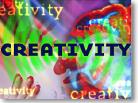|
Am innovative, will compete
|
 |
February 13, 1998: 11:18 a.m. ET
Author stresses need for corporate creativity in a global marketplace
|
NEW YORK (CNNfn) - Innovation is increasingly becoming the key to success for companies trying to survive a tough marketplace, according to a top management consultant.
Tom Peters, author of "The Circle of Innovation," told CNNfn's "Business Day" Friday some Asian countries could give American companies a "really good run for our money" unless they find ways to re-invent themselves.
Peters also discussed how corporate culture needs to change to nurture more creativity.
Here is a partial transcript.
STUART VARNEY, CNNfn ANCHOR, BUSINESS DAY: I always thought as an outsider, as an Englishman living in America for a quarter century, that American companies were already extremely innovative. Are they not?
TOM PETERS, MANAGEMENT CONSULTANT: I suspect that is true by some standards. The problem is, the entire world is catching up. I mean five or 10 years ago, obviously, it was a miracle if car doors shut and engines turned on in the cold. Now we've reached the point where the quality of virtually everything is good, and institutions that were wildly special like Federal Express (FDX) are not as special as they used to be. And so the question is, with Asia burgeoning after, perhaps, this current blip, what's the next act? And I think it's got to be yet another dose of innovation.
VARNEY: Presumably, you're talking about a switch in corporate culture within any given company. They've got to innovate to stay around.
PETERS: Yes, absolutely. And it is a monumental shift, because you're talking about recruiting from unusual sources, rewarding a little bit of craziness, cherishing the foul ups that inevitably precede doing something interesting and new. So, it is a huge shift that an awful lot of people are going to have an awful lot of trouble with, frankly. Individuals, too, are part of this deal. This is not just a corporate level thing.
VARNEY: Yes. But aren't you really talking about a new youth culture, which is going to hurt older people at any organization? Youth is going to be stressed in an innovative environment, isn't it?
PETERS: I think you're right. I mean there's no -- speaking as a 55-year--old guy, absolutely. We are, despite all the hype, the reality of this information technology led revolution is just that -- revolution. And the reality is that our eight- and nine-year olds growing up on Sega and Nintendo, and so on, may know more about this world than the 50-year olds do, truth be known. And maybe if you haven't got a -- as I said before, the heck with the law if you haven't got a 16-year-old chief information officer, you may be headed in the wrong direction.
VARNEY: We're going to quote you on that if you're not careful. Can you point out a particular corporation that is innovative in the way you think they ought to be innovated?
PETERS: Well, take two examples: One in the high tech world where, perhaps, one would expect it. Cisco Systems (CSCO), which makes a lot of the plumbing, as they even call it, for the Internet, is a company that has grown by leaps and bounds. And it really understands the deal about hiring talent.
Nike (NKE), again, some problems from time to time, but Nike continually reinvents itself. The youth culture, to put it mildly, is very alive and very well in Beaverton, Oregon.
VARNEY: Do you think that, at this moment, the American economy is quicker than almost any other economy to take up what is new and to innovate? Are we better at it already than anybody else?
PETERS: Anybody is a big word. I mean I am just absolutely stunned by, still, places like Taiwan, mainland China and their willingness, particularly, because to some extent the absence of regulations and laws -- when they get an idea they run with it -- sometimes in a pirated fashion. But we are very good certainly compared to the Europeans -- certainly, compared to Japan. But I think the Asian culture, the Chinese culture, the Indian culture will give us a really good run for our money. At least I hope so. Competition is what it's all about.
VARNEY: I want to ask you one last question if I may. I get the distinct impression, but I cannot back it up with anything more than anecdotal evidence. I get the impression that Americans are working a lot longer and a lot harder now than they did five or 10 years ago.
PETERS: I think -- I mean I believe -- I'm not an expert in that field either -- but the numbers that I've seen, my reading says you're absolutely right. And, again, it's this reverse phenomenon where the people who are really working hard are the so-called leisure class, the relatively well off, and they're the ones whose working hours have actually shot through the sky. The average UAW worker, I don't think, in a plant in Detroit, -- assuming there are any plants left in Detroit -- has seen his or her week not increased, or at least I don't think so. 
|
|
|
|
|
|
Tom Peters Group
|
Note: Pages will open in a new browser window
External sites are not endorsed by CNNmoney
|
|
|
|
 |

|

